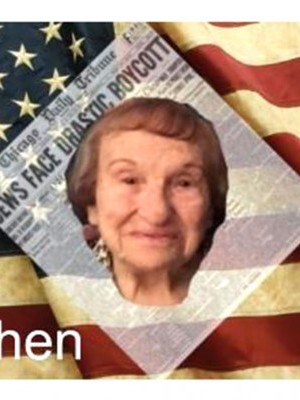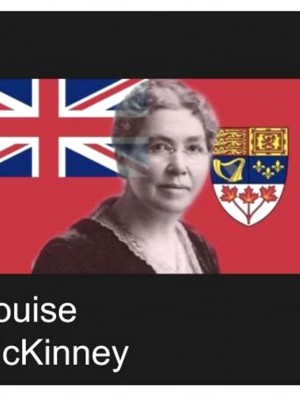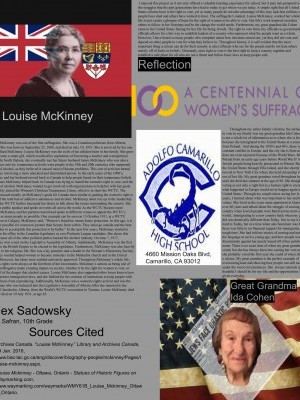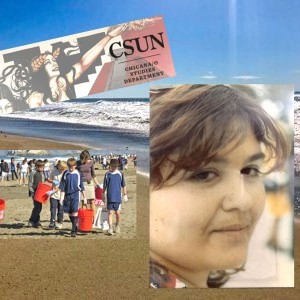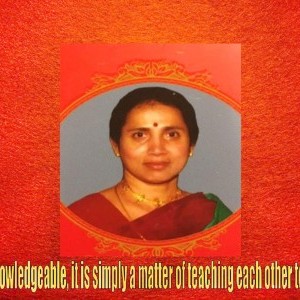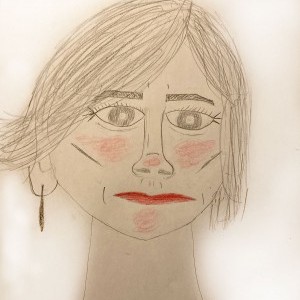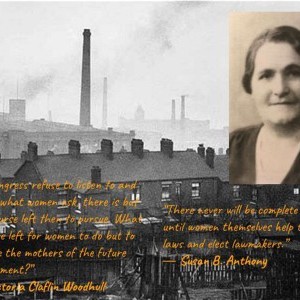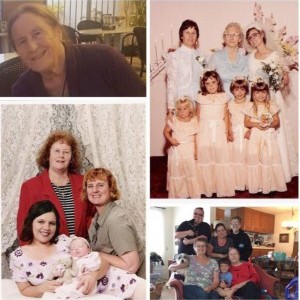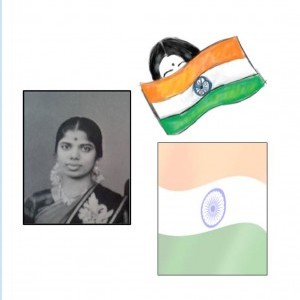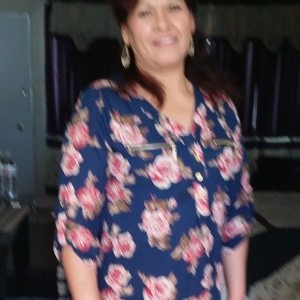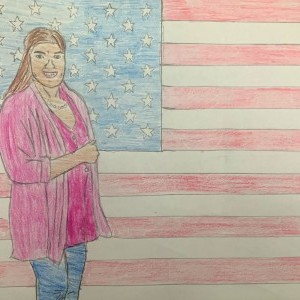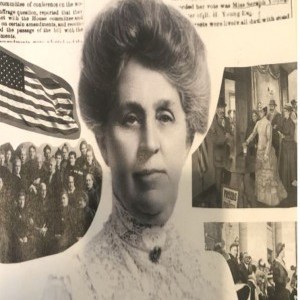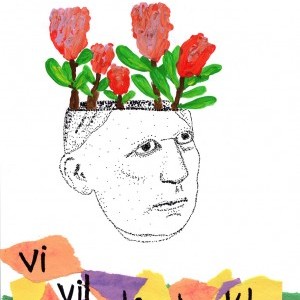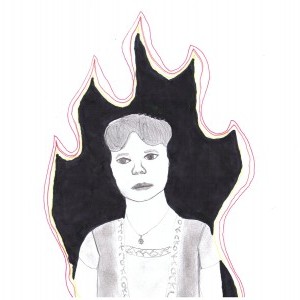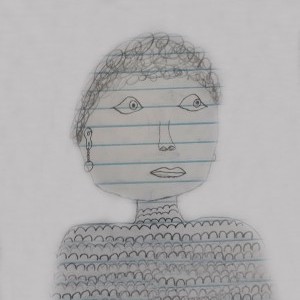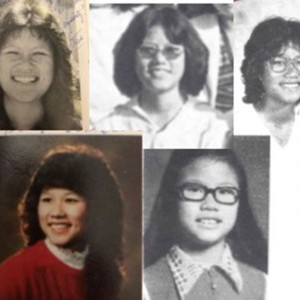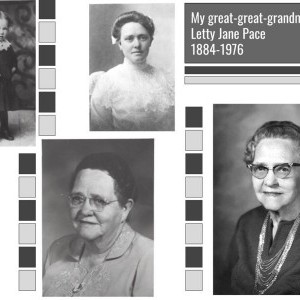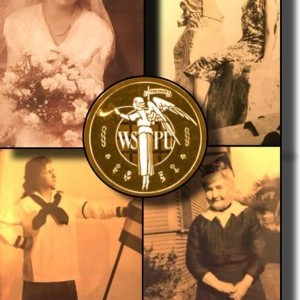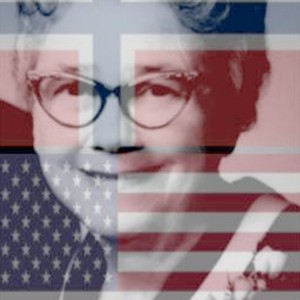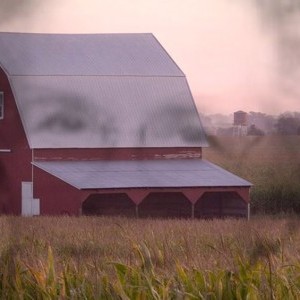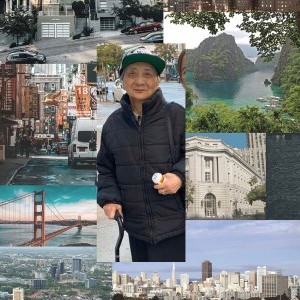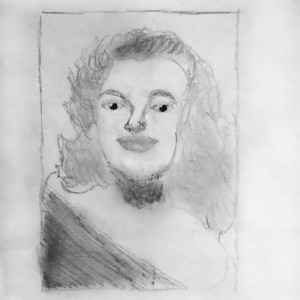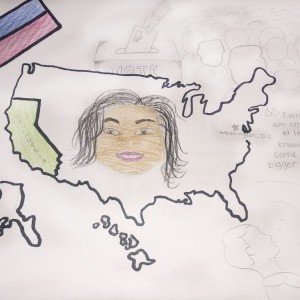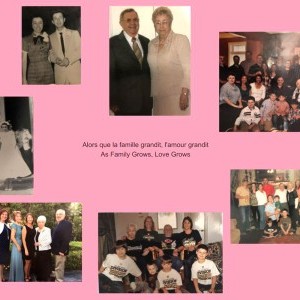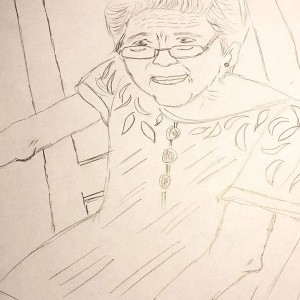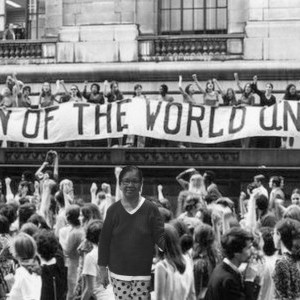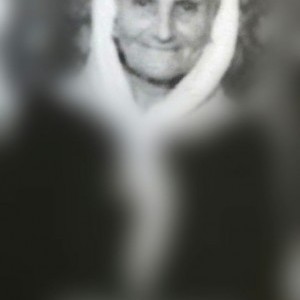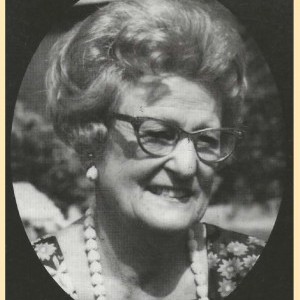Alex Sadowski
Adolfo Camarillo High School | Camarillo, CA | 10th
Inspirational Family Member
Ida Cohen, My Great-Grandma
Throughout my entire family’s history, the earliest person to vote in my family was my great-grandma, Ida Cohen. There is not a whole lot of information as to where she is from, because she immigrated to the United States at a young age from Poland. And during the 1930s and 40s, there was constant conflict in Europe, and the city she is from most likely does not exist anymore because of the World Wars. She fled Poland from an early age, years before World War II because Jewish people were being heavily persecuted in Poland. She came to the United States through Ellis Island, and she shortly after moved to New York City where she held citizenship in for the rest of her life. My great-grandma voted throughout her life up until she died last summer at the age of 98. She thought of voting as not only a right but as a human right to ensure that what happened in Europe would never happen again in the United States.
Through my couple times seeing her in recent years, I learned about what was important to her and her values. She lived in the exact same apartment in Queens for over 40 years and talked about the struggle of coming to a new country when Jewish people were hated across most of the world. Immigrating to a new country back when my grandma did was drastically different than today. Not to say it is not hard to today, but at a time when anti-Semitism was high and there was little to no financial support for immigrants, it was a tough time. She told me stories of arriving and not knowing the language at such a young age, and how people would discriminate against her purely based on her Polish last name. There is no exact date of when my great-grandma first voted, but she has always been into casting her vote, and she probably voted the first year she could of when she became a citizen. My great-grandma is the perfect example of overcoming hate and showing how people can still succeed under the worst circumstances. She always reminds me of how thankful I should be for the life and the opportunities I am given everyday.
Historical Figure I Admire
Louise McKinney
Louise McKinney was one of the first suffragettes. She was a Canadian politician from Alberta, Canada. She was born on September 22, 1868, and died on July 10, 1931. She is survived by her one child, Willard McKinney. Louise McKinney was the sixth of ten children born in her family. She grew up to become a smart girl, which excelled her aspiration in becoming a teacher and a temperance activist. In North Dakota, she eventually met her future husband James McKinney who was also a temperance activist. Temperance activists were people in the 19th and 20th centuries who supported the ban of alcohol as they believed it caused most of human problems.
This sort of activism turned McKinney into being a more educated and determined person. In the early years of the 1900s, McKinney and her husband moved back to Canada to help people based on their temperance beliefs. Among the main issues McKinney helped with back in Canada was trying to install the woman's right to vote, and the banning of alcohol. McKinney wanted to get involved with organizations to help her with her goals. She quickly joined the Woman's Christian Temperance Union, which is in short the WCTU. The WCTU focused mostly on McKinney's goals for Canada most similar to gaining the women's right to vote, and the total ban of addictive substances and alcohol. McKinney short rise up in the leadership roles of the WCTU further increased her desire to talk about the issues surrounding the country. She became a public speaker and spoke at events all across the world.
As the WCTU became more popular, McKinney and her partners toured and spoke at different venues to promote the WCTU’s views to as many people as possible. One example can be seen on 13 October 1911, at a WCTU convention in Calgary, McKinney said, “Women’s franchise means home protection. In this age, it is no longer possible for women to protect their homes from within. They must go outside and the best way for her to accomplish this protection is by ballot.” In the next few years, McKinney started to campaign for office in the Canadian legislature as a Non-Partisan League candidate. She chose this party because all of the other political parties backed the alcohol industry. On June 7, 1917, McKinney won a seat on the Legislative Assembly of Alberta. Additionally, McKinney was the first woman in the British Empire to be elected to the legislature. Furthermore, McKinney was also heavily involved in her religious life.
She was a lay preacher and a leader in the Woman’s Missionary Society. McKinney wanted to help women to become ministers in the Methodist church and in the United Church. However, her ideas were attacked and rarely approved. Throughout McKinney’s whole life, women’s rights were always at the forefront of her movements. McKinney’s actions as being one of the first suffragettes made a lasting impact on society, whether it be the right for women to vote, or her belief of the danger that alcohol causes. Louise McKinney also supported other lesser known laws such as stricter immigration laws, and she lobbied for the creation of institutions to keep people with mental illness from reproducing. Additionally, McKinney was a women's rights activist and was the first woman who was inducted into the Legislative Assembly of Alberta. Louise McKinney died on 10 July 1931, at age 63, after she returned to her home in Claresholm, Alberta, from the World’s WCTU convention in Toronto.
What the Project Means to Me
I enjoyed this project as it not only offered a valuable learning experience for school, but it puts into perspective the struggles that the past generations have had to make to get where we are today. A simple right that all United States citizens have is the right to vote, yet so many people do not take advantage of this easy task that millions of people have died for and others have wished to have. The suffragette I studied, Louise McKinney, worked her whole life to just create a glimpse of hope for the right of women to be able to vote. Her life's work inspired countless others to follow in her footsteps and be the change the world needs. Furthermore, my great-grandma, Ida Cohen, came to the United States fleeing for her life for being Jewish. The right to vote from city officials to government officials allows for a fair way to establish leaders of a country who represent what the people want as a whole. However, I have heard so many people who complain about how elections turned out, yet they did not vote and depend on other people to vote for what they believe in.
or
Throughout history, it is self-evident that the most important thing a citizen can do for their country is elect officials who are for the people and do not hate others merely for their looks or beliefs. Ultimately, one’s right to vote is the best right to keep a country together and establish a safe place for all who are not a threat and follow basic laws to keep people safe.
Explore the Archive
More From This Class
Click on the thumbnails below to view each student's work.Deadline Extended
There's still time to join Women Leading the Way.
Become a part of our storytelling archive. Enroll your class today.
Join the Project

